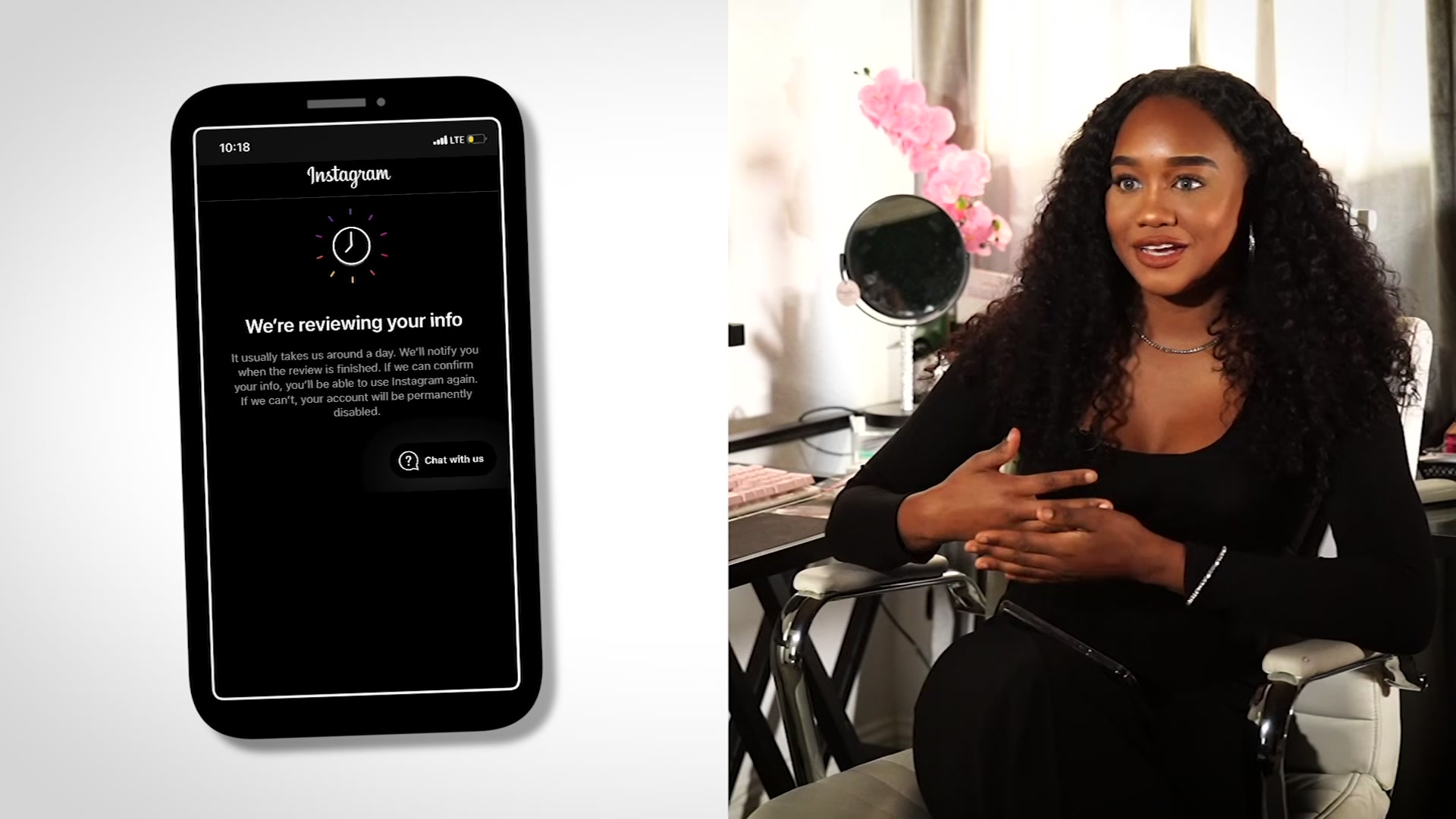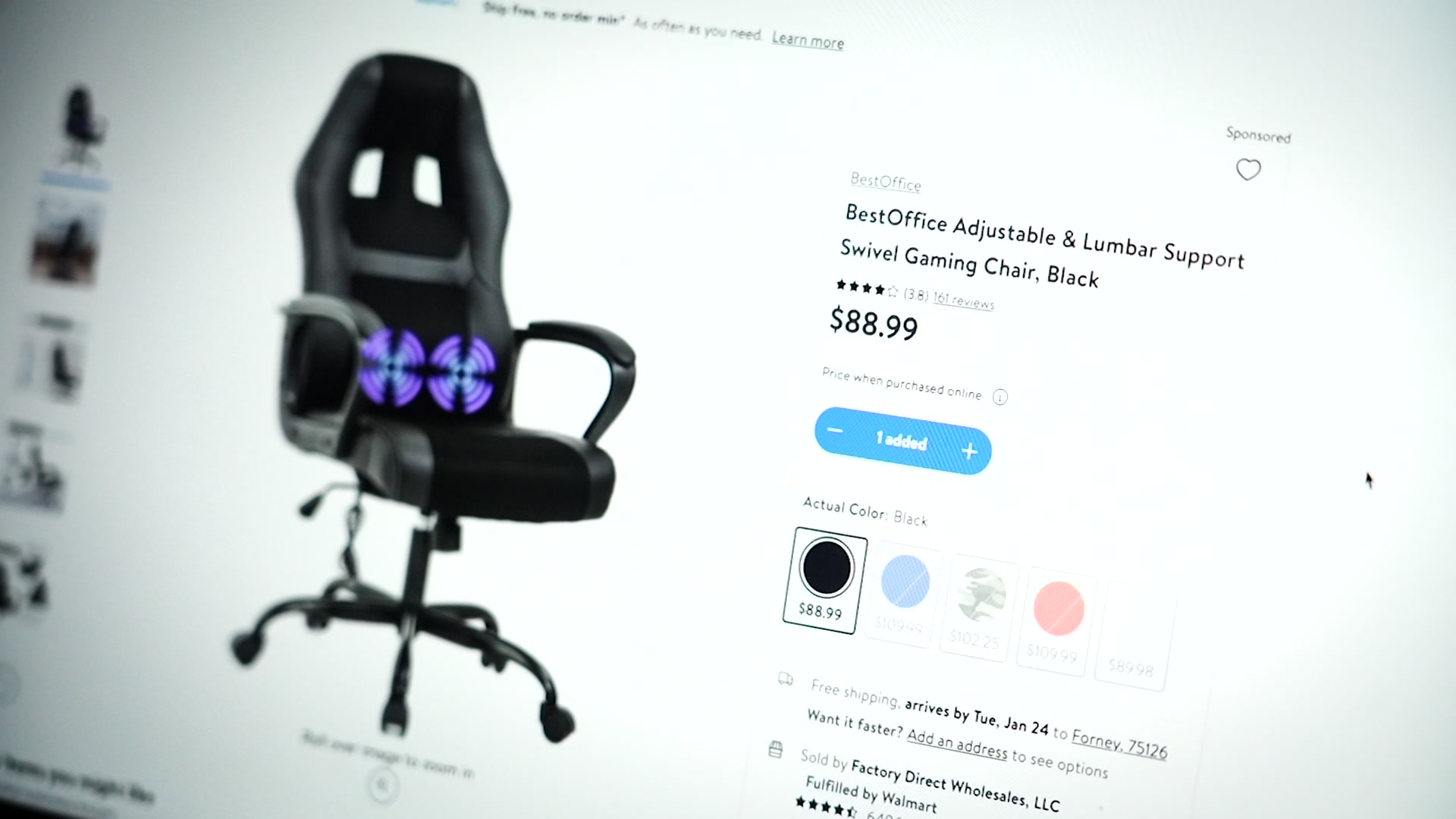NBC 5 Responds to a North Texan who said she woke up from a medical procedure to find her front tooth gone. She said she went back and forth with the hospital about paying for a repair.
“AM I MISSING A TOOTH?”
After undergoing a colonoscopy and an upper GI endoscopy, a procedure to put a flexible tube down a patient’s mouth to examine the upper gastrointestinal system, Tamara Knight-Trigg said she woke up from anesthesia with a strange feeling in her mouth.
“Instinctively, my tongue just grazed the back of it and there was a space,” recalled Knight-Trigg.
She said she turned to a nurse.
“First words were, you know, 'am I missing a tooth?' That's exactly how I asked them, you know. This is crazy,” Knight-Trigg said.
Knight-Trigg said the porcelain crown on her front tooth was sitting on her chest.
After leaving the hospital that day, she said she saw a dentist and learned it wouldn’t be possible to simply reattach the crown.
“This was all that was left of my tooth,” Knight-Trigg said, pointing to a photo of her tooth, “There was nothing they could grasp and so they told me they would have to get a periodontist involved because they'll need to extract the tooth.”
Knight-Trigg said the dental office provided an initial estimate of $12,655 and then a second quote with adjusted coding for $10,090.
Knight-Trigg said she later got a second opinion with an estimated treatment costing $3,667.
Knight-Trigg said the second dentist cautioned the fix could cost more later, “I could probably pull it back and probably get another post, he says. Even if I do that, there's no guarantee that it'll last three months. There is no guarantee that it won't last a lifetime, he said. But it could end up costing you more.”
Knight-Trigg asked the hospital to cover the cost of repairing the tooth and shared email communication with NBC 5.
In it, the hospital writes, in part, a bite block is used to protect teeth from the scope during the procedure and it’s unsure of prior dental history and can’t answer why it happened.
The hospital offered to pay $2,990 for dental treatment. Knight-Trigg said she didn’t have dental coverage and was facing thousands in out-of-pocket costs.
“Talking to you, I didn't even realize I was still hurt by it,” said Knight-Trigg. “I'm hurt physically, mentally and I'm hurt, I’m mad.
When NBC 5 and Knight-Trigg spoke, she said a dentist cemented the crown to her tooth as a temporary solution.
“He was kind enough to cement it back, but it's hanging on. I have to eat on the side of my mouth,” Knight-Trigg said.
NBC 5 Responds reached out to the hospital. By phone, Hunt Regional Healthcare tells NBC 5 Responds, in part, as a public hospital, it’s the steward of taxpayer funds in Hunt County. It said it has to look at every situation closely and balance what’s fair to the patient and what’s fair to the community as a whole.
It also said patients sign an informed consent form which would have listed tooth injury is a rare possibility. The hospital said no other injury like this has ever occurred at a Hunt Regional Healthcare facility.
The hospital also said it had not seen the second opinion until after NBC 5 reached out and was reviewing it.
Knight-Trigg said the hospital later sent her a second offer to pay another $667 for a total of $3,667.
Knight-Trigg told NBC 5 she is accepting that offer and putting it towards a treatment plan that requires surgery. Knight-Trigg said the dentist is discounting some of the care. She’s worked out a payment plan and started a Go Fund Me for the rest.
“Your whole life is vicariously lived through your teeth. You’ve got to speak, you’ve got to eat. I was just defeated,” said Knight-Trigg.
NAVIGATING DENTAL CONCERNS
It’s not clear exactly how often dental trauma happens during medical procedures.
Jeff Ryan, an attorney who is not involved in this dispute and typically represents providers said, “From a pure medical standpoint, it's a recognized risk to general anesthesia.”
Ryan added, “Not every patient comes into a procedure with the same set of teeth, if you will. You may have patients, if they have caps or crowns, that may make it more susceptible to injury during the process of anesthesia.”
Generally, he said patients should try to work with the hospital, explaining patients may have a difficult time finding a lawyer. Ryan explains litigation in medical cases is expensive.
“If there's a contingency fee arrangement, there's not going to be enough benefit for that attorney to spend the time hiring a doctor to prove that there was negligence to pursue the lawsuit,” said Ryan.
Where does that leave patients who need a procedure, but may worry about their teeth?
“The best thing is to tell them, yes, I have crowns, especially if you have crowns in the front of your mouth. That's going to be the most susceptible area,” said Dr. Hunter Stuart with the Texas Dental Society of Anesthesiology.
Dr. Stuart is a dentist anesthesiologist. He has not examined Knight-Trigg. Generally, he said many factors can cause tooth injury when a scope is put into the mouth like teeth that are already loose or prior dental work.
“I would say don't be overly concerned, but do make the make the attending aware you do have that concern with your mouth and you'd like for them to be as cautious as possible,” said Stuart.
NBC 5 Responds is committed to researching your concerns and recovering your money. Our goal is to get you answers and, if possible, solutions and a resolution. Call us at 844-5RESPND (844-573-7763) or fill out our customer complaint form.
Get DFW local news, weather forecasts and entertainment stories to your inbox. Sign up for NBC DFW newsletters.



